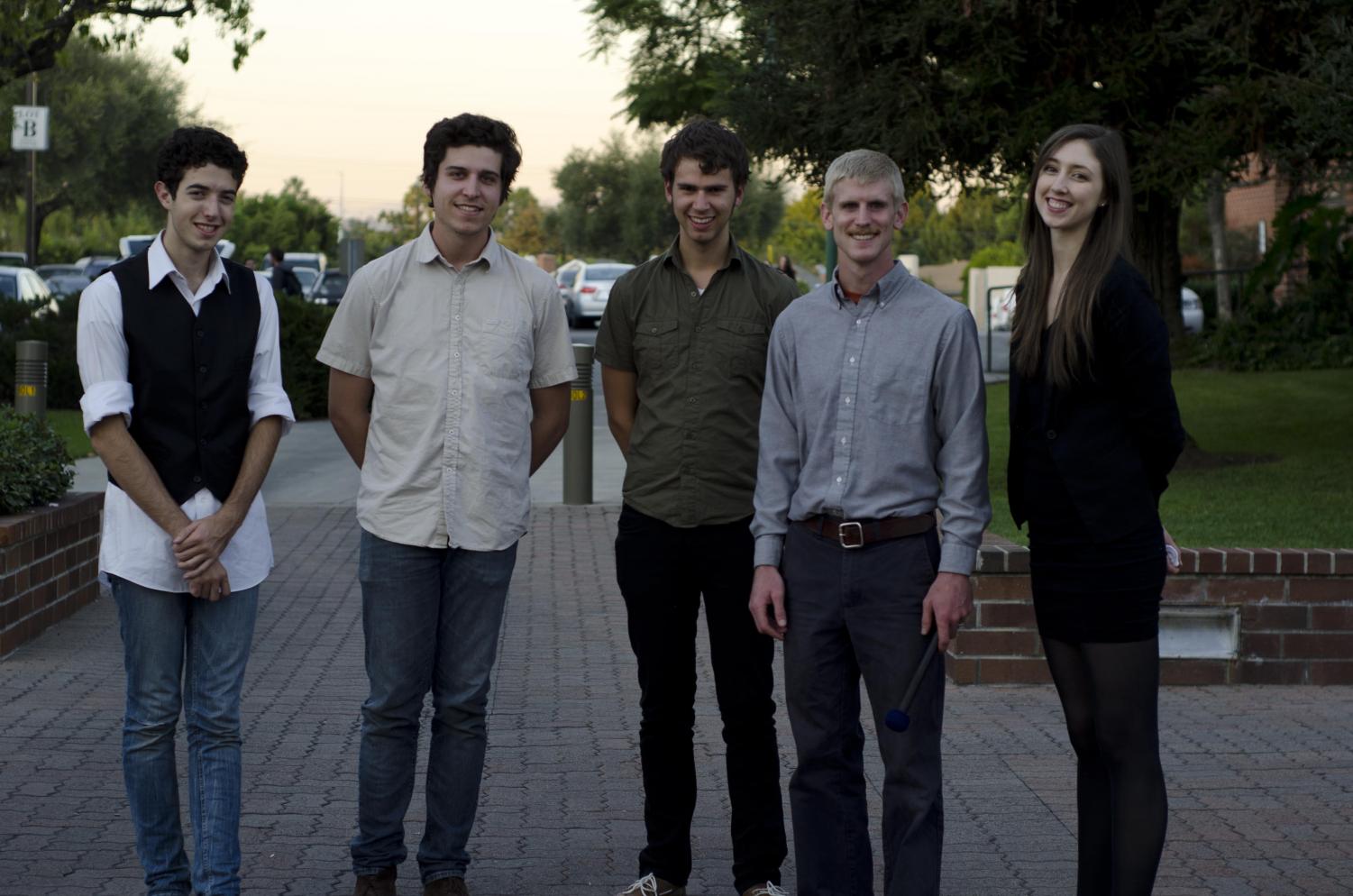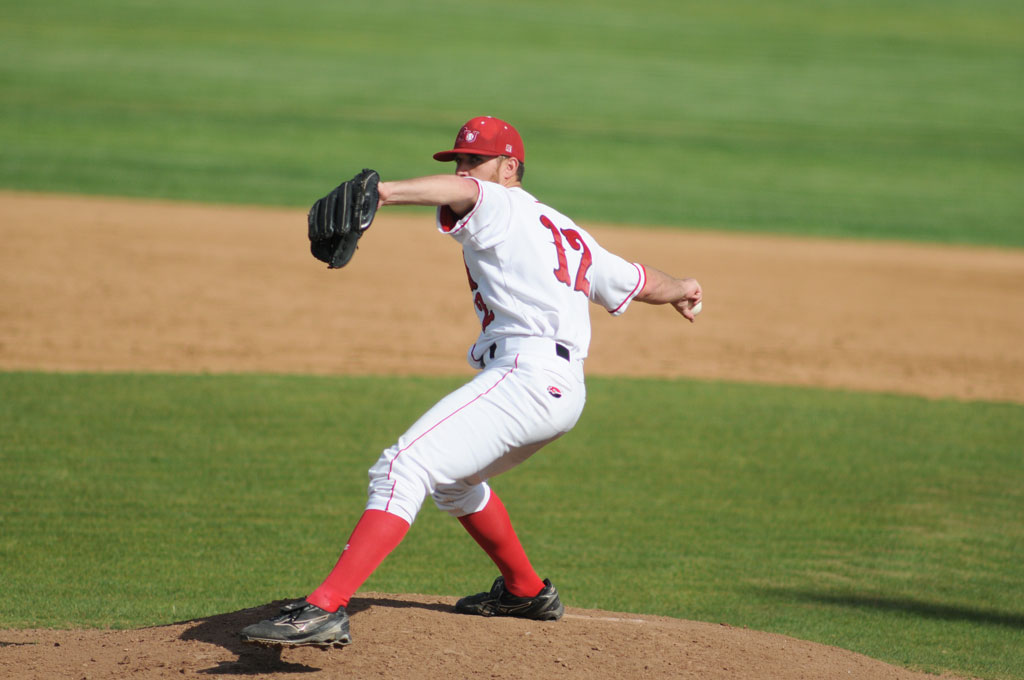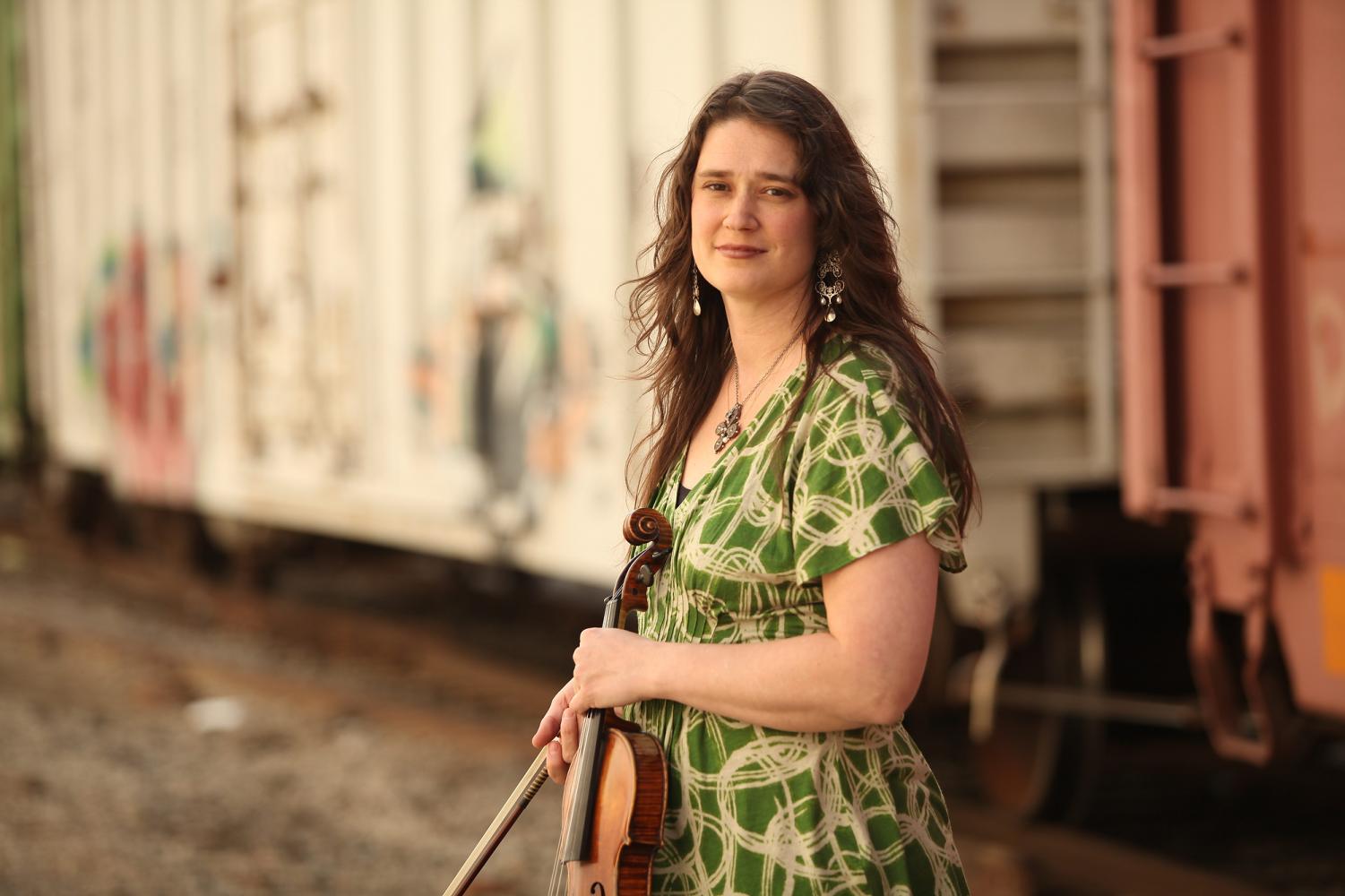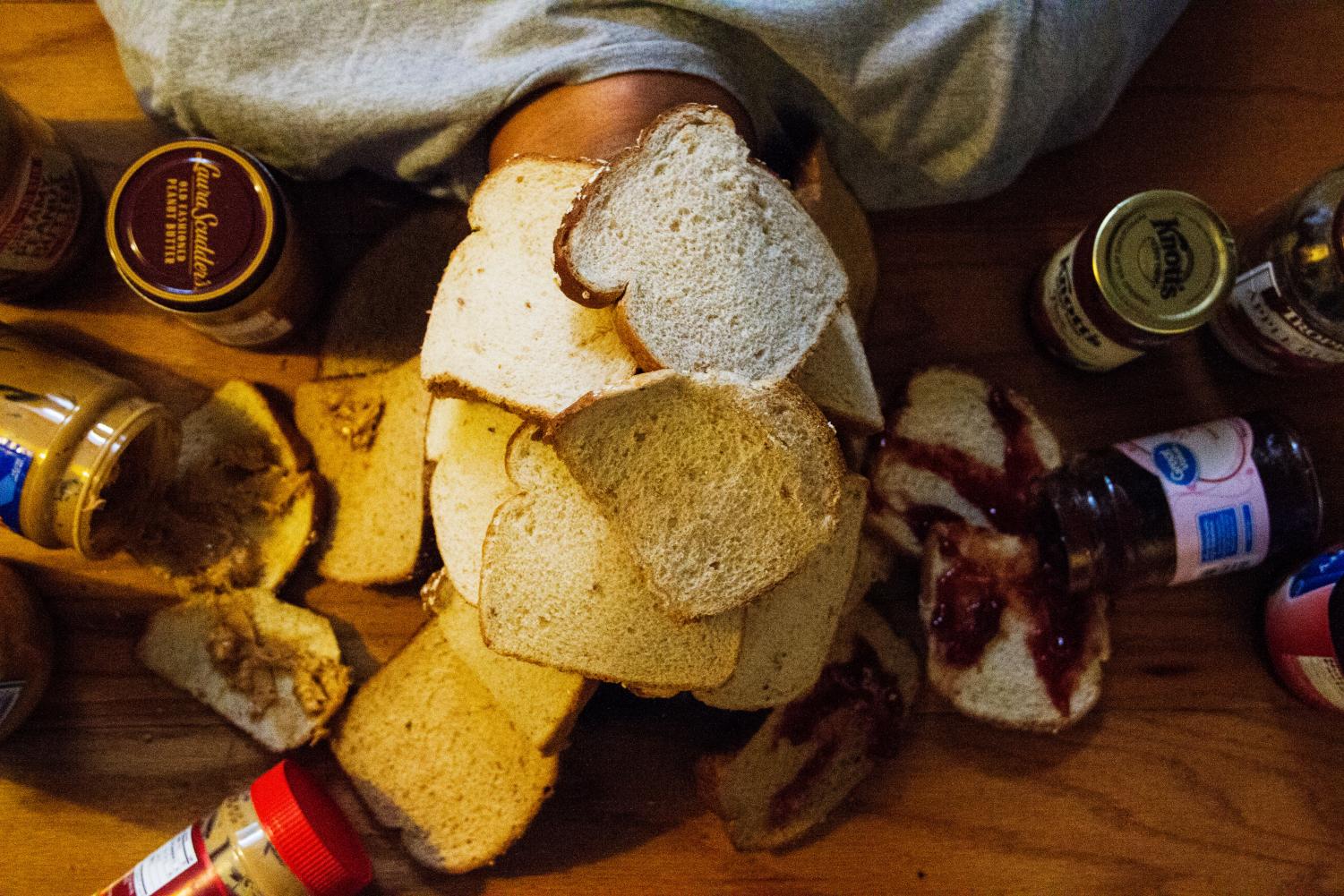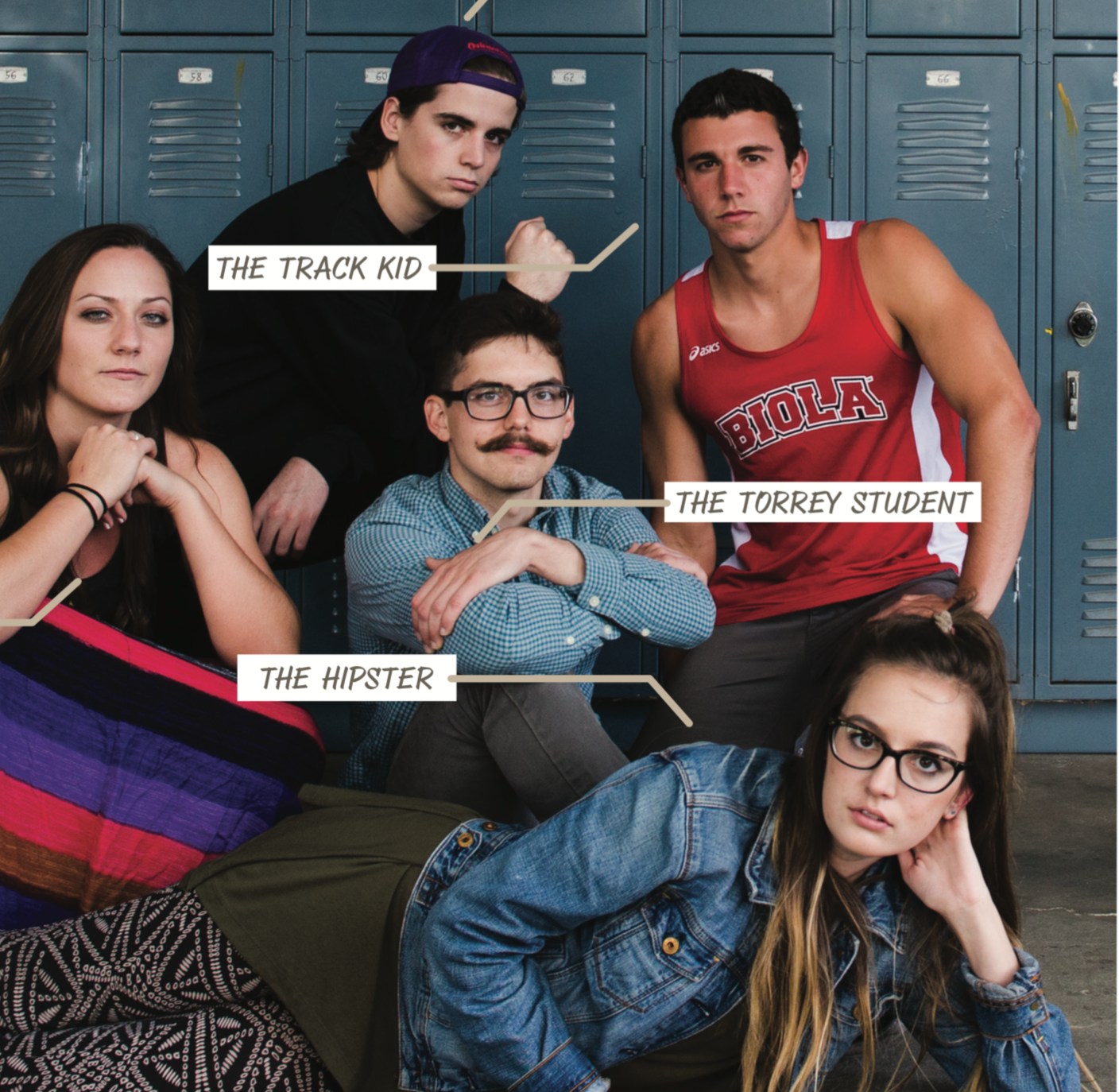Written by Kristi Yumen
A blank page is an intimidating prospect. A college student faces it as he begins an essay. A painter faces it as she approaches a future masterpiece. And a composer faces it as he, or she, explores the limits and endless possibilities to be found in the world of notes and chords, clefs and octaves.
It starts with improvisation. Dabbling around on the piano, stringing together notes, then scratching them out. Exploring, discovering and evoking emotions and pictures, adorning a blank canvas with inspired music. The work of the composer has only just begun.
The Road to Composition
Whether it is a recognizable classical piece, an epic film score or even a character theme from a video game, most composers can recall the initial inspiration behind their pursuit of musical composition.
A music appreciation class initially stirred sophomore Hannah Parrott’s love for music, and the score to a familiar film gave her direction.
“I saw The Chronicles of Narnia and was just stunned by the music in it — how beautiful it was and how well it portrayed the story,” she says.
After that spark, Parrott decided to enter Biola’s music composition program, and without any previous classical training, she began taking piano lessons. Now very involved in the department, she is growing and thriving in her dream to write music for film.
Approaching composition from a different direction, Biola Conservatory of Music professor Robert Denham began his musical career as a classical trumpet player, before being drawn into writing his own music.
“Around sophomore year, I just got a hankering to try to write a piece and see if I could do it,” he says. “So I did.”
Today, as Biola’s music composition area coordinator, as well as a professor and mentor, he says he has never regretted choosing composition.
Several composition students, both current and former, affirm that earning the opportunity to hear their finished piece performed by other skilled musicians remains one of the most appealing aspects of the craft.
“I love to sit and write and look forward to that performance and feel like I created something that’s my voice,” says recent Biola graduate Evan Eliason. “The ultimate goal is to have something performed, and I think that’s the most fulfilling thing about composition.”
The Process and the Product
A piano, a notebook of blank sheet music, a pencil. Square one. Skilled fingertips jump and dance back and forth across the expanse of black and white, searching for that inspired melody. The creative process varies from composer to composer depending on style, and from piece to piece depending on its intended use.
Traditionally, composers begin with their primary instrument, writing notes and ideas by hand as they play. However, with advanced notation and composition software now playing an active role in the industry, especially in film and television scoring, some composers forgo the keys of a piano altogether in favor of the keyboard of a computer.
Many in the world of concert and classical music remain traditional in this sense, continuing to foster the bond between mind and pencil.
“I work with pencil and paper, because there is just something about it,” Denham says as he displays his notebooks of handwritten music. “There’s some connection that doesn’t exist with a computer. There’s a lot of different processes. Everyone operates a little differently.”
As he continues to flip through pages of music, he passes lines scratched out with large Xs, tiny notes jotted in margins and series of his own shorthand abbreviations.
“It’s like wet clay on a potter’s wheel,” he says. “You’ve seen a potter shaping a pot and then smash it and start over. That’s exactly what I’m doing here.”
Similar to Denham’s illustration of wet clay, senior Garrett McPherson compares composing to creating a sculpture of stone.
“The slower you take it, the better you can chisel it,” he says. “If you just whack away with a chisel, you’re probably going to make mistakes and it’s not going to be as beautiful. If you go slower, you can really digest the ideas you have and put them down carefully.”
Parrott approaches the composition process methodically, beginning with research about the instrument and the kind of piece she is writing, before sitting down at the piano and defining the boundaries within which she is composing.
“Especially right now in the formative stages of my composition, I really need to write inside the box before I can write outside,” she says.
Defining the parameters of what he or she is writing gives a composer a stronger grasp on what the piece will eventually become. Denham identifies a failure to understand the big picture as a major problem students face. “If you have a sense of the whole, even if it’s a loose-wet-clay kind of whole, then you can work within that framework and fill it in like a coloring book,” Denham says. “That’s easy, but a blank piece of paper is not.”
Often a composer is working on an assignment, or has received a commission and must complete the work on a deadline.
“It takes determination and you just have to grit your teeth and go for it,” Eliason says. “It’s kind of scary. You could eat it. Hard.”
For Love, Not for Money
Removing the romance of this creative profession leaves an equally formidable challenge to the composer: making money in the competitive industry.
“You have to be resourceful and you have to have a business mindset,” Eliason says. “You could be an amazing composer, but if you didn’t have those skills of networking, of knowing how to connect with musicians. . . you could be behind the scenes and never get paid for a single composition.”
Eliason, who double majored in music composition and education, explains that nearly every composer must earn his livelihood through other avenues.
“I’m not actually expecting to make money as a concert composer,” he says. “There’s probably only about eight composers in the world who are making their living just composing concert music. They almost always do something else.”
These other avenues include teaching, performing, conducting, publishing and various other music-related careers.
Despite the struggles and burdens a composer may have to bear, McPherson says, “We wouldn’t do this unless we loved it.” It is the passion for the craft and the fulfillment of a final performance that strengthens these composers to navigate through the difficulties of composing.
“Why compose? It’s almost like, ‘Why breathe?’ It’s part of who you are,” Biola alumnus Sam Smythe says. “It’s the only thing I know how to do. It’s what I feel I’ve been called to and what I love to do.”
Denham offers a word of insight in facing the challenges of the profession. “You have to believe in what you’re doing,” he says. “You have to believe there is a purpose; we’re glorifying the Lord through our creativity and reflecting him in that.”
Biola Composers Making Their Marks
As a major that remains consistent at about 20 students every year, music composition often falls under the radar of many Biolans. Composition students’ pieces are played in chapels, sung by The King’s Men and performed in orchestra and ensemble concerts, yet the majority of the student population is unaware that these pieces were composed by their fellow undergrads; few outside of the Conservatory are aware of the activity, work and successes of Biola composers.
Many students interested in film scoring are involved in Biola’s Film Music Guild, founded in 2007 by alumnus Dave Martina, and currently led by Parrott.
“[The Film Music Guild] connects musicians, composers and filmmakers together and forms an environment outside the classroom where we can learn about our craft and how to relate to each other,” Parrott says.
Collaboration through this guild has also aided in the production of multiple student films.
Through hands-on experience in college, several alumni of the composition program have made connections in the industry and secured jobs with well-known professionals. Smythe, who graduated in 2007, now writes under commercial composer Jim Dooley, who previously collaborated with Hollywood composer Hans Zimmer before branching off to pursue his own work. Smythe has had the opportunity to work on scores for the television comedy “Wilfred,” and the video game “Epic Mickey,” among others.
Martina, a graduate of the class of 2009, is now an assistant to Oscar-winning film scorer, Michael Giacchino, working with him to score blockbuster movies such as “Super 8,” “Cars 2,” “50/50,” “Mission Impossible: Ghost Protocol” and “John Carter” in 2011 alone.
Beyond the scope of classical and commercial music, composing can also be extended into a full performance experience, used to convey messages and pose questions.
“The Bells Lead the Blind the Lines Bleed,” written by Eliason, is one such piece. This work is what is called an indeterminate piece, meaning that there are elements of chance within the performance that cause each concert to vary. Featuring blindfolded hand bell players searching on their hands and knees for systematically arranged bells in their paths, the piece questions whether any truly original music is left to be made.
“What new music will be created when it seems we’ve exhausted a lot of what we have?” Eliason asks. “But I’m still composing so obviously I don’t completely agree with that — but I’m posing the question: What is left to create?”
As with every creative art form, music composition requires a degree of inspiration, and inevitably there will be some days when inspiration does not come easily.
“Whether it be poetry, or whether it be dance — sometimes you just don’t feel like dancing, but you have to,” Denham explains.
Rather than allowing a case of writer’s block to stop them, Biola composers look to their own Creator to aid in their creativity.
“[Being] a Christian composer means realizing we are subcreators,” Eliason says. “We’re not the ultimate Creator. Our Father created everything, but he’s blessed us with the privilege to be able to create under him.”
